The Doers: 25 trailblazers creating hope and inspiring us
Insider

- Insider has compiled a list of 25 people creating hope and inspiring us.
- The list includes people who are working on projects related to social justice, gender and LGBTQ rights, sustainability, public health, and education.
- The honorees include a restaurateur training refugee chefs, a COVID-19 patient advocating for "long-haulers," scientists turning plastic into valuable products, and high-schoolers building a youth-led climate movement.
During a time of uncertainty and upheaval, we turn to the doers of the world.
Doers are trailblazers creating hope and inspiring us. When they see something wrong, they work to change it.
The 25 people below, selected from hundreds of nominations, have had a clear impact across key causes: education, gender and LGBTQ rights, public health, social justice, and sustainability.
They're sparking climate change awareness, advocating for COVID-19 patients, organizing protests, highlighting pay inequity, making food pantries more accessible, and bringing mindfulness to the classroom.
Read on to meet the millennial and Gen Z doers who are inspiring us in 2020.
Alok Vaid-Menon, 29, is challenging myths about gender in fashion.
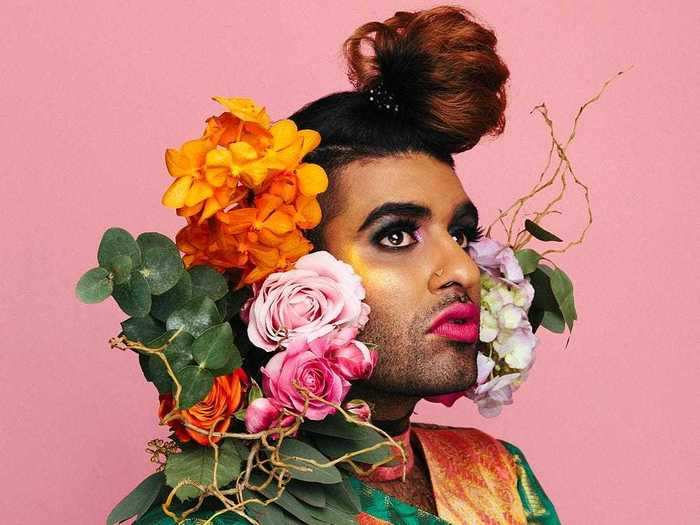
Writer, designer, poet, performance artist: Alok Vaid-Menon is all of the above, and then some.
"I do so many things, but 'artist' feels the most like home," Vaid-Menon, who is gender non-conforming, told Insider. "I am an artist that fashions words, images, performances, outfits, and ideas as a counterspell to the myths we are told about gender, but also about humanity more broadly. I fight for complexity in a world that so often reduces us to a category."
Vaid-Menon realized from an early age that art was the medium through which they could challenge the gender binary and write themself into existence.
"Growing up, I had no frame of reference for anyone like me," they said. "Rather than viewing that as an impossibility, I chose to receive it as an invitation. Why not write my own script? Why not experiment with another way of living? "
The 29-year-old now has 426,000 followers on Instagram, where they often speak about the importance of degendering fashion.
In June, Vaid-Menon released a book called "Beyond the Gender Binary," which they said is a response to the "dozens of anti-trans bills" that have sprung up across the US over the past few years.
"I wanted to demystify these strategies, outline what transphobia looks like, and help people see through the smokescreens," they said.
"'Beyond the Gender Binary' is an accessible handbook for the fight against bigotry and for gender diversity," they added. "One that shows how a world beyond gender stereotypes is helpful for everyone."
— Anneta Konstantinides
Shane Burcaw, 28, and Hannah Aylward, 24, are erasing stigmas around disability.
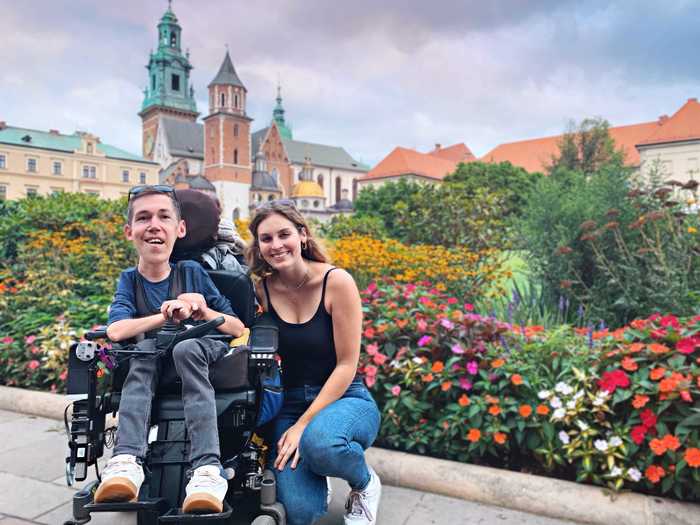
When Shane Burcaw and Hannah Aylward started their YouTube channel in 2018, they planned to document their summer travel for friends and family. Two years later, the couple has accrued 672,000 subscribers, cultivated a community of devoted fans, and become leaders in disability activism online.
Before the pair became internet sensations for their channel, called 'Squirmy & Grubs' — their nicknames for each other — Burcaw channeled his wry sense of humor into a blog, a memoir, and, eventually, a nonprofit centering the conversation around disability.
The 28-year-old has spinal muscular atrophy (SMA), a genetic disease that causes muscle to deteriorate, and he uses a motorized wheelchair.
Aylward and Burcaw struck up an internet romance in 2016. After a year of long-distance FaceTime calls, Burcaw relocated to live with Aylward in Minneapolis, where the two began filming their adventures, sharing their daily routines, and answering commenters' questions about the realities of their interabled relationship.
Six months into making videos, they collaborated with a popular YouTube channel and received 100,000 subscribers overnight.
"We suddenly had this platform and it led to us realizing that we have a chance to make a real impact on how a lot of people think about disability," Burcaw told Insider. "Then the channel evolved from this fun project to our full-time careers. We really narrowed our message to be about erasing the stigmas that surround disability and using our relationship and the fun that we have to educate people."
Burcaw and Aylward are now writing a book that highlights what they describe as the "beautiful variety" of relationships that involve disability. Over the last year, the pair interviewed 30 couples in which one or both partners has a disability.
"When people watch our videos, they occasionally come away with the idea that we're super unique or rare being an interabled couple, but that is not at all the case," Burcaw said. "When we put out the request for interviews, we got 600 applications overnight from people all over the world in all kinds of relationships."
— Margot Harris
Michael Tubbs, 30, is showing how basic income can work in an American city.
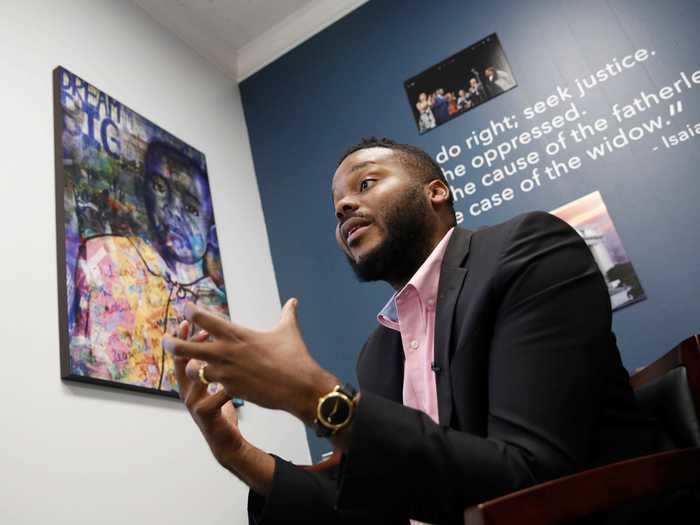
Michael Tubbs' father was sentenced to life in prison, and his mother had him when she was a teenager.
"The odds of my success were very limited," Tubbs told Insider via email. "But like many in Stockton, I persevered."
Tubbs was elected mayor of Stockton, California, where he was born and raised, in 2016 — making him the youngest mayor of a town of more than 10,000 people, at age 26. He is also the first Black mayor of Stockton, the most diverse city in America.
Tubbs became a national political figure in 2017 when he announced the launch of the Stockton Economic Empowerment Demonstration (SEED), the United States' first mayor-led guaranteed income demonstration.
Starting in 2019, 125 randomly chosen Stockton residents began receiving an unconditional $500 each month through the basic income program to use how they see fit.
"For too many generations, low-income Americans, especially those of color, have been asked to find success, without the tools needed to be successful," Tubbs said. SEED attempts to level that playing field.
Tubbs told Insider that the program is already helping residents pay for rent, groceries, and debt, as he details in "Stockton On My Mind," an HBO documentary released on July 28.
Tubbs hopes future generations bring more empathy to politics — and to life.
"Too much of our political perspective is built from our own personal vantage point rather than taking into consideration other viewpoints. We all have blind spots," he said. "It starts with you."
— Samantha Grindell
Emily Brown, 34, is delivering allergy-friendly and gluten-free food to families in need.
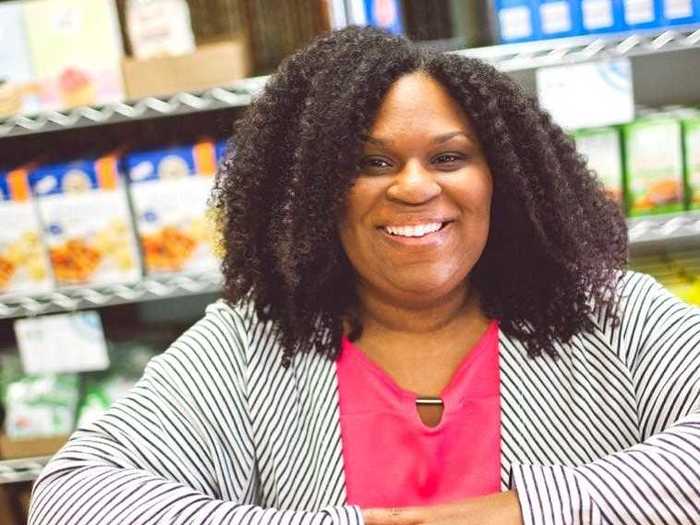
When Emily Brown's one-year-old daughter was diagnosed with allergies to peanuts, milk, eggs, and wheat, her grocery bill quadrupled "almost immediately."
The Missouri preschool teacher tried to find help through the Special Supplemental Nutrition Program for Women Infants and Children (WIC), only to discover that it didn't provide the allergy and gluten-free foods that her daughter needed. When Brown went to her local food bank and pantry, the problems persisted.
"I stood in line for two hours, and the only safe foods available were two potatoes and a jar of salsa," she told Insider.
Brown saw there was an unmet need that disproportionately affected low-income families of color.
She launched the nonprofit Food Equality Initiative (FEI) and, in 2015, opened the nation's first allergy-friendly and gluten-free food pantry.
She quickly realized that pantries weren't successfully serving the people who needed them most because of their limited hours. Brown also found that the stigma of visiting a food pantry was keeping many families away.
When the pandemic hit, she pivoted the nonprofit's distribution model within a week so that she could deliver food directly to families in need.
The model was so successful that FEI is launching an online pantry next month that will allow people across the US to order allergy-friendly and gluten-free foods and have them delivered to their doorstep within two days.
It's a system that puts choice in the hands of the families, rather than forcing them to pick up pre-packed boxes filled with foods they can't eat.
"It's just waste that comes from this idea that beggars can't be choosers and they're hungry so they'll eat whatever," Brown said. "We've tried to reimagine how we can do this work in a dignified, effective, and efficient way."
— Anneta Konstantinides
Fiona Lowenstein, 26, is advocating for COVID-19 "long-haulers."
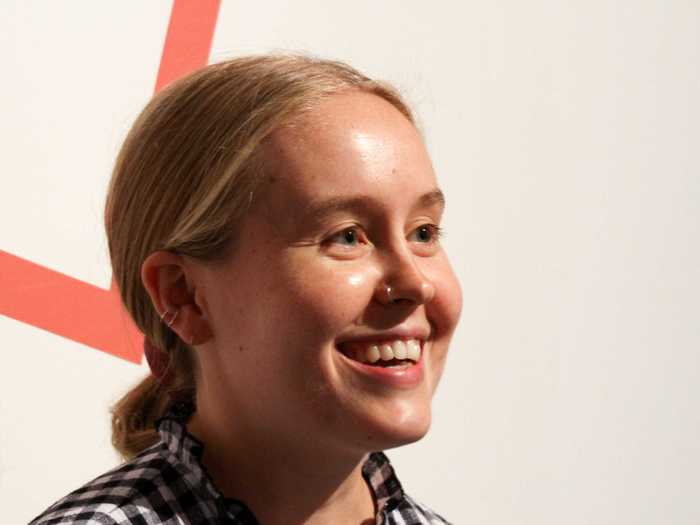
Fiona Lowenstein was among the thousands who contracted the novel coronavirus in the US in March. Lowenstein's symptoms lasted for months on end.
Their battle with COVID-19 inspired Lowenstein, who uses she/they pronouns, to create the Body Politic COVID-19 Support Group, an online forum that has helped over 14,000 long-haul patients connect with one other while investigating the little-understood "Long COVID" phenomenon.
Lowenstein first founded Body Politic in 2018 as a queer feminist wellness collective, event series, and media startup for marginalized communities.
The support group took off after Lowenstein and Body Politic Creative Director Sabrina Bleich both contracted COVID-19. After noticing the lack of information about coping with the long-term symptoms of the disease, Lowenstein launched the group.
In May, Lowenstein and Body Politic's in-house researchers compiled a survey of 640 long-haul COVID-19 patients that medical professionals have since consulted to better understand the patient experience.
It wasn't until the pandemic and their work with the support group that Lowenstein fully realized "how limited [their] understandings of the disability justice movement" were.
"I wish people knew that the narrative we hear about COVID-19 patients is often white-washed and/or describes the experience of patients who are economically privileged, and that many COVID-19 patients struggle to access testing and adequate medical care for the virus," she told Insider.
— Canela López
Alexandria Villaseñor, 15, is building a youth-led movement for climate change action.
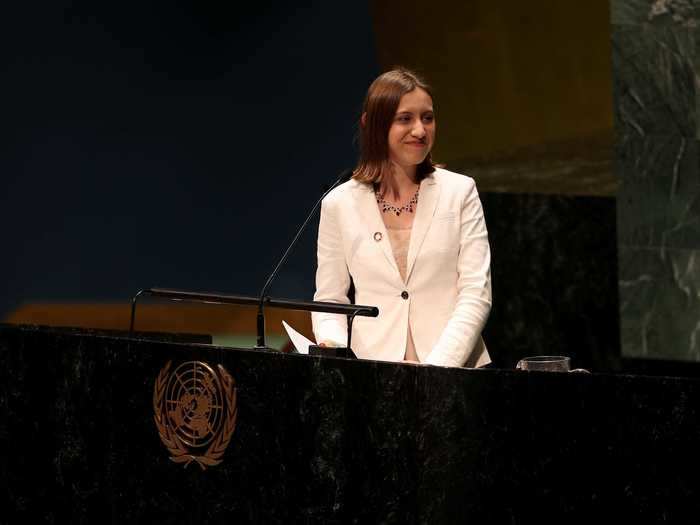
Growing up in northern California, Alexandria Villaseñor felt connected to nature. Her family frequently went hiking on trails in the woods and visited a pond near their home where they would catch tadpoles.
When the family relocated to New York City in 2018, Villaseñor continued to go back and forth to visit her hometown. On one trip home, she witnessed the deadliest and most destructive wildfire in California's history.
"The smoke was seeping into the house, and we had to find ways to keep it from coming in," she told Insider. "I also have asthma, so it was making me sick. Because of that, my family ended up sending me back to New York City early for my safety."
The fire was a turning point for Villaseñor.
"I was very upset seeing what was happening to my community," she said. "So I wanted to research and find out why that was happening.
Her research led her to see the connection between climate change and wildfires, and it opened her eyes about how much she and her fellow students didn't know about an issue that would unquestionably impact their futures.
In December 2018, Villaseñor began striking in front of the United Nations Headquarters to support the school strike movement spearheaded by teens in Europe. She picketed every Friday for over a year, and has only paused her strike due to the pandemic.
Eventually, Villaseñor decided to expand her activism beyond protesting. In 2019, she founded Earth Uprising, a youth-led movement that describes itself as "a battle cry" for global action on climate change.
The organization connects and educates youth activists who demand that world leaders implement changes to keep the planet below two degrees Celsius of warming.
Most recently, Villaseñor contributed to "All We Can Save," a forthcoming collection of essays from women climate leaders.
— Margot Harris
Raquel Willis, 29, is telling Black trans stories.
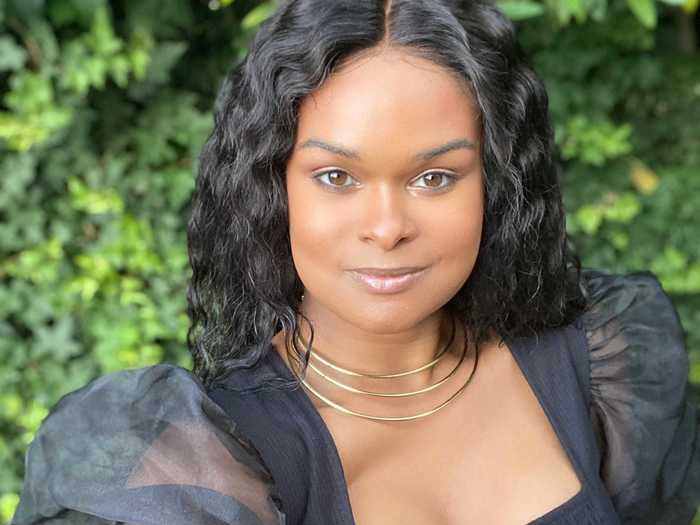
In June, at the height of a series of protests against police brutality, Raquel Willis addressed a crowd of at least 15,000 people about the importance of Black trans life.
Spurred by the murders of Black trans women like Riah Milton and Dominique "Rem'Mie" Fells, The Brooklyn Liberation March made history.
Amid a pandemic, a crowd of people all dressed in white and face masks spanning several New York City blocks gathered on that hot summer day. "I believe in Black trans power," Willis told the crowd.
As a Black trans activist, media maven, and Director of Communications for the Ms. Foundation for Women, Willis has focused her career on telling Black trans stories.
A year prior to the march, an Afro-Latinx trans woman named Layleen Cubilette-Polanco was found dead in Rikers Island solitary confinement. Willis, Executive Editor of Out Magazine at the time, wanted to pay homage to Polanco and the 23 other trans women of color killed in the US in 2019 alone.
Under her leadership, Out launched The Trans Obituaries Project in December 2019, an award-winning series of obituaries honoring the legacy of trans women who were lost to violence.
"So often we are misgendered, dead-named in coverage when these murders happen and also aren't humanized and don't get the beautiful obituaries," Willis said.
Willis has since shifted her focus to creating opportunities and funding for young women of color.
"We got folks at the front lines of the Movement for Black Lives, folks at the front lines of the movement for indigenous sovereignty, Black trans women on the front lines who are doing so much important work and just getting pocket change," Willis said. "It's mind blowing."
— Canela López
Nya Collins, Jade Fuller, Kennedy Green, Emma Rose Smith, Mikayla Smith, and Zee Thomas, 14 to 16, are leading the next generation of protest organizers.
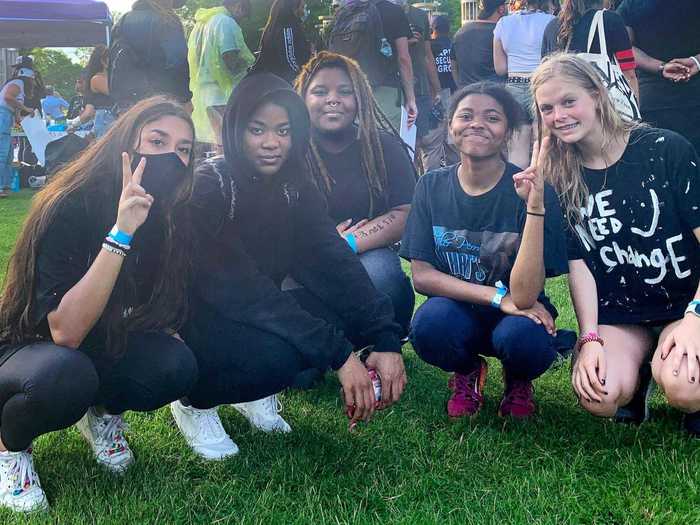
On June 4, 20,000 people gathered to protest George Floyd's death in Nashville, Tennessee. The number of demonstrators was stunning, with activists making their way through the city for five hours.
An event of that size would indicate seasoned organizers behind the scenes, but it was actually six teenagers — Nya Collins, Jade Fuller, Kennedy Green, Emma Rose Smith, Mikayla Smith, and Zee Thomas — with no experience protesting, let alone organizing, who made it happen.
The group met on Twitter, connecting over their rage at the loss of George Floyd, a Black man who died after a white Minneapolis police officer knelt on his neck for almost nine minutes.
They advertised the protest themselves, rallying people of all ages to join them through social media. They had support from the Nashville chapter of the Black Lives Matter movement, working together to create the powerful demonstration.
"As teens, we are desensitized to death because we see videos of black people being killed in broad daylight circulating on social media platforms," Zee Thomas said at the protest. "As teens, we feel like we cannot make a difference in this world, but we must."
— Samantha Grindell
Meymuna Hussein-Cattan, 39, is training refugees to become professional chefs.
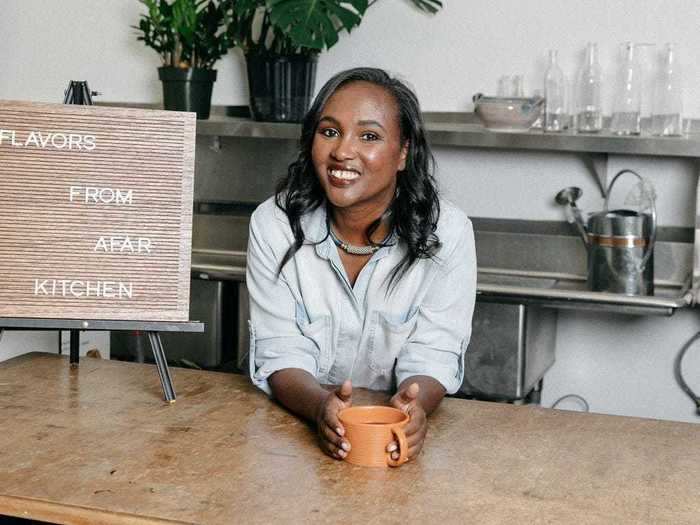
Growing up in a Somali refugee camp, Meymuna Hussein-Cattan remembers the images that were frequently shown in the media — the hungry children, the skeletal figures.
Hussein-Cattan, 39, wants to change that narrative with Flavors From Afar, a Los Angeles restaurant that exclusively employs and trains refugee chefs so they can eventually establish their own restaurant or catering service.
"It's an existing talent with the refugee community, and our job is to help refine that," she said. "You get the home-taught chef and then you train them on how to work in an industrial kitchen, how to get their certificates, and how to market."
Through Flavors From Afar, which opened in March, Hussein-Cattan has been able to help everyone from a single mom with six kids from Somalia to a Guatemalan chef who faced decades of discrimination in the US restaurant industry.
All proceeds from the restaurant go directly to the chefs and The Tiyya Foundation, an award-winning nonprofit that Hussein-Cattan founded with her mother in 2010 to provide refugee families with services including youth programs, family mentoring, and college workshops.
While Flavors From Afar is focused on take-out and delivery services due to the pandemic, Hussein-Cattan still wants the restaurant to provide a gateway to refugees' stories — a thousand-mile journey from the likes of Egypt, Venezuela, Belize, and Kenya.
"It's important to know the truth and the despair and the challenges that they have," she said. "But I think, in the media, the stories stop with refugees on boats or in camps or entering through the borders. No one talks about what happens after all that trauma, when they're restarting their lives."
"Rather than lead with the refugees' trauma, we'd rather lead with their talent."
— Anneta Konstantinides
Dr. Ayana Elizabeth Johnson, 36, is highlighting how racial justice and climate change intersect.
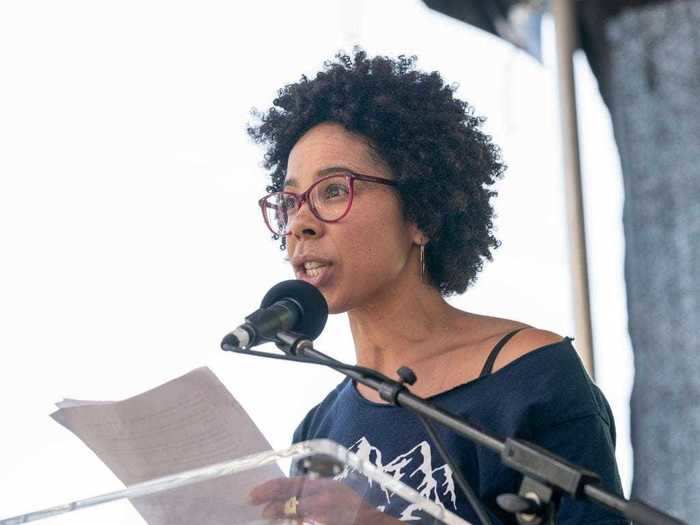
Marine biologist Dr. Ayana Elizabeth Johnson is CEO of consultancy Ocean Collectiv, founder of non-profit think tank Urban Ocean Lab, co-editor of " All We Can Save: Truth, Courage, and Solutions for the Climate Crisis," and now co-host of the podcast "How to Save the Planet."
A common thread in Johnson's many ventures is her focus on racial justice and climate solutions.
In June, Johnson gained attention for an article she wrote in the Washington Post that discussed the climate-related projects she had recently left unfinished because of racism in America, including a policy memo to Congress, the introduction to her book on climate solutions, and planting vegetables with her mother in their Climate Victory Garden.
"How can we expect Black Americans to focus on climate when we are so at risk on our streets, in our communities, and even within our own homes?" she wrote. "How can people of color effectively lead their communities on climate solutions when faced with pervasive and life-shortening racism?"
Johnson's advice for people who want to get involved in environmental activism: "Do it. We need your help. Find a local environmental justice group to get involved with and support."
"A great place to start is with the organizations who are members of the Climate Justice Alliance. And read everything written by Mary Annaïse Heglar and Rhiana Gunn-Wright."
— Canela López
Miranda Wang and Jeanny Yao, 26, are turning plastic trash into valuable products.
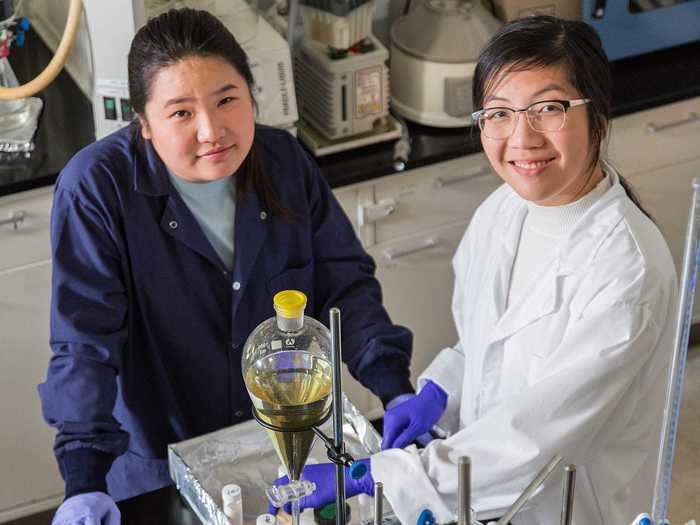
Miranda Wang and Jeanny Yao have been working to improve recycling for over 10 years — more than half their lives.
It began in 2015, when they were high school students on a field trip to a waste transfer station in Vancouver, Canada. The teens couldn't believe how much plastic the city was throwing away.
"You know how in 'Harry Potter,' when the wand chooses him? This problem is a little bit like that for me," Wang told Insider.
Four years later, while they were both in college, Wang and Yao founded BioCellection.
They developed a technology that takes plastics and breaks them down into their building blocks. BioCellection then upcycles those materials into valuable products that they can sell.
Wang and Yao are currently using their technology on polyethylene, which is one of the most popular plastics in the world and yet has less than a 6% recycling rate.
"The plastic is really cheap to make from fossil fuels and gets contaminated really easily. A lot of people have shied away from this problem, so we decided to target it," Wang said
It would take thousands of years to naturally break down bubble wrap and produce bags. BioCellection's technology can do it in six hours, Wang said.
BioCellection uses the broken-down plastic to make thermoplastic polyurethane, which is used in a variety of industries, including footwear, fashion, and consumer electronics.
"Our big goal is to kind of remake the world," Wang said. "Our problem is that we don't know what to do with [plastic] materials once they've served their first purpose. We need to figure out how to sustainably break down those materials, and we need to learn how to rebuild them."
— Anneta Konstantinides
Janice Martellucci, 31, is bringing mindfulness education to public schools.
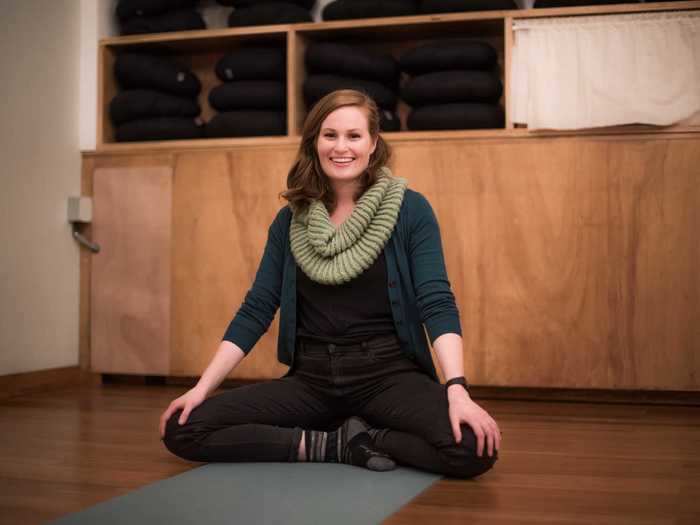
Janice Martellucci is the lead teacher and managing director for Peace in Schools, a nonprofit that brings mindfulness education to public schools in Portland, Oregon.
As lead teacher, Martellucci teaches courses designed with the goal of making mindfulness education accessible to everyone. Her classes have been taught virtually since March because of the pandemic.
Martellucci came to mindfulness in 2010 after going through what she calls a quarter life crisis. She says the practices have allowed her to love herself unconditionally, and she wants to help others find that sense of inner peace.
Martellucci's work helps students become more present and less anxious — yoga often plays a role in her lessons — and a study done in partnership with Johns Hopkins University found that students who are LGBTQ, BIPOC, and who have experienced trauma are seeking out Peace in Schools courses.
Mindfulness education has become even more important in recent months, as Martellucci helps students process traumatic events and lead their lives with empathy.
"Right now, teens have nothing to hang on to," Martellucci told Insider, pointing to the uncertainty in the world. "If we look outwards, there's nothing to make us feel stable, safe, secure, or optimistic about the future. So the class is really about how we access the safety of our own selves."
— Samantha Grindell
Sabia Wade, 31, is improving Black maternal health outcomes.
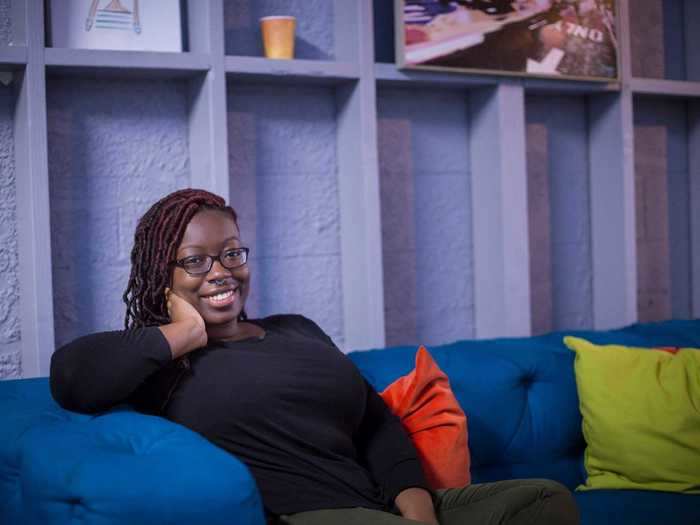
Doctors told one of Sabia Wade's clients that attempting a vaginal birth after two cesarean deliveries was going to kill her baby.
But professional guidelines don't back that up, and the woman, who is Black, wanted the benefits of a vaginal delivery. Plus, her earlier births were traumatic; she was never told if or why the surgeries were needed.
So, she pushed on and delivered a healthy baby — a feat largely supported by doulas at "For the Village," Wade's nonprofit that provides free doula services to people in San Diego County, California.
"Seeing her being able to feel like she was in community and to feel like she had autonomy over her body was like, 'Oh, this is why we do this," Wade, who's since moved to Atlanta, Georgia, and guides those on the ground virtually, told Insider.
Her organization, which has served over 200 people since launching in 2018, is dedicated not only to filling gaps in care, but also to improving Black maternal health outcomes by educating and empowering clients like the new mom of three.
In the US, Black women are three to four times more likely to die in pregnancy, childbirth, or immediately postpartum than white women.
Wade wants to see that disparity shrink through improvements in tracking where, why, and how the deaths are occurring.
"We can have as many implicit bias trainings as we want, but we're not actually addressing what [these disparities in care] look like and what we need to do about it," she said.
In addition to her work in San Diego, Wade has also created training programs, including a 12-week "full-spectrum doula training" in 2019, to teach advocacy for underrepresented communities. Conducted online, the Birthing Advocacy Doula Trainings has about 250 students worldwide.
— Anna Medaris Miller
Adesuwa Ajayi, 28, is shedding light on pay inequity among online influencers.
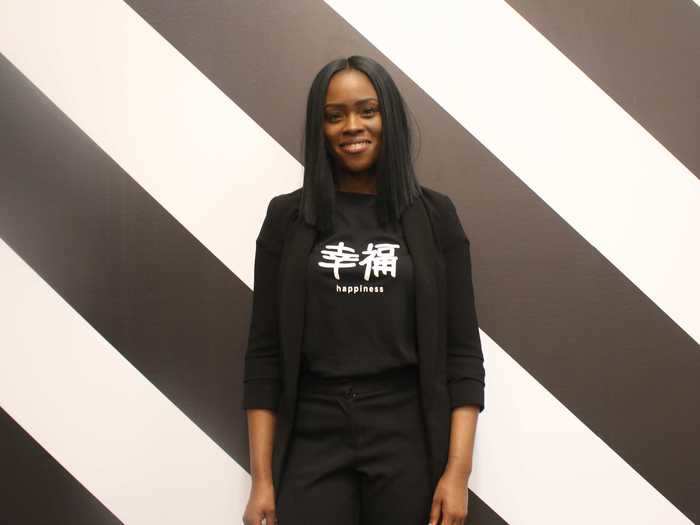
After years of working in talent management for underrepresented creators — and years of witnessing inequities in the influencer space — Adesuwa Ajayi wanted to create a resource for Black influencers navigating a largely unregulated industry that often lacks transparency.
In June, she launched the @influencerpaygap Instagram account, which highlights pay inequality and serves as a resource for Black creators looking to negotiate and advocate for themselves.
"I was frustrated that I was seeing people who are more than qualified — more than capable of doing amazing things — being overlooked and undermined," she told Insider. "It got to the point where I had to try and create a space where people can come and share their experiences and give Black influencers insight into what others are earning."
The Instagram account, which has accrued over 41,000 followers in two months, advocates for "more transparency and more accountability" and urges influencers to send in details of their paid gigs. DMs, which can be kept anonymous, are then posted to the main page.
Black and white creators alike have shared details of their compensation in order to shed light on a wide range of experience.
While discussing compensation can be awkward, the page has created a supportive community of influencers with a large variety of niches and followings, Ajayi said. Creators and industry professionals provide advice and encouragement to one another in the comments section. Some even offer legal representation and job opportunities.
"I think the account's large following speaks to how many people have needed a space like this," she said. "Not everyone has access to groups that speak about these things.
— Margot Harris
Dr. Cleavon Gilman, 41, is shattering the myth that the coronavirus only affects older people.
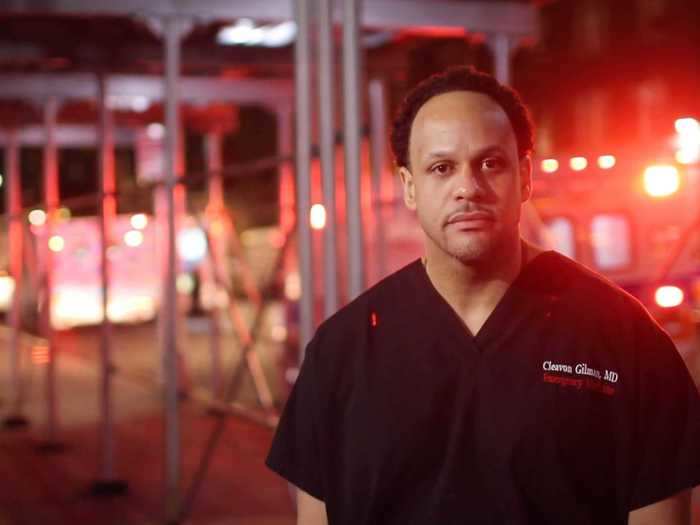
Skylar Herbert was "a really happy five-year-old," her mom said, when she died from COVID-19. Jameela Dirrean-Emoni Barber, a rising high school senior, was 17. Ben Luderer, a baseball coach in New Jersey, was 30.
These are some of the hundreds of young people who've died of COVID-19 that Dr. Cleavon Gilman, an emergency medicine physician in Arizona, has been documenting through his project #COVIDDeaths, intended to shatter the myth that the virus only affects older people.
When you put a face and name to the deaths, he told Insider, "it becomes a bit more real." Gilman hopes the project will wake up Americans who aren't doing their part to mitigate coronavirus spread.
"The pandemic is out of control," Gilman said. "We have 60,000 cases per day, and the more cases you have, the more children will be affected by it."
Gilman, a former Navy medic who served in Iraq, didn't set out to become an advocate, nor did he have the time to. Serving as the chief resident of emergency medicine at New York Presbyterian Hospital during the peak of the pandemic in New York City, he worked eight to 12 hour days. He's also a musician, partner, and father of two.
But in March, Gilman felt compelled to document his experience on the frontlines through social media under the hashtag #CleavonMDJournal.
Now he's continued his advocacy through #COVIDDeaths, a project that "weighs very heavy" on his heart.
"I do this on my own time," he said, "because I want to prevent unnecessary deaths in America."
— Anna Medaris Miller
Brandon Maxwell, 35, is embedding philanthropy and community outreach into his fashion business.
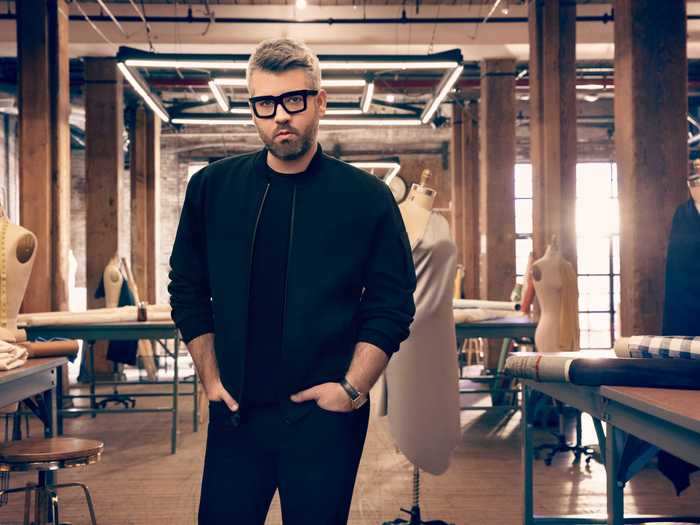
Although he made his name in fashion, philanthropic efforts and community outreach are embedded into everything "Project Runway" judge and fashion designer Brandon Maxwell does.
In March, Maxwell and his team pivoted to make make PPE for medical workers in need, sewing gowns, masks, and gloves instead of high fashion looks for weeks. Maxwell also gave away three wedding dresses to brides suffering financially because of the pandemic.
And as outrage poured out across the country over George Floyd's death and racial inequality, Maxwell created change within his own company to promote BIPOC talent.
He's rolled out a one-year residency program in his studio for up and coming Black fashion designers, giving them access to mentors, professional connections, and learning opportunities. The residency will both create opportunities for Black designers and provide them with the resources they need to succeed.
Maxwell's studio will also give two scholarships to BIPOC fashion students in need annually.
— Samantha Grindell
Anna Voelker, 24, make science more accessible to people with disabilities.
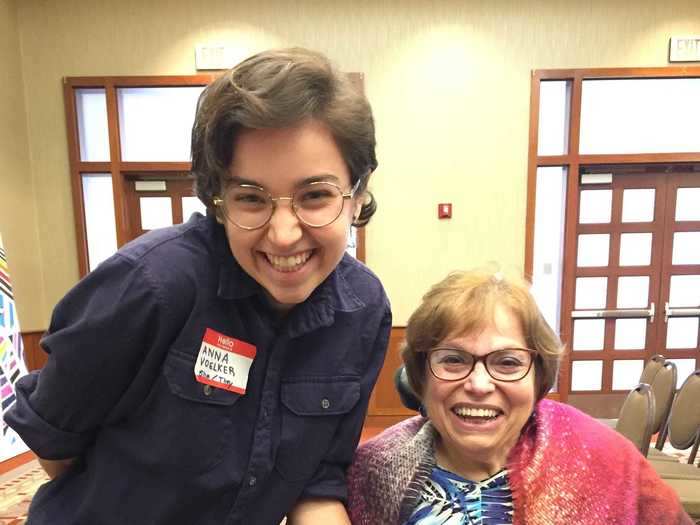
When Anna Voelker met astronaut Anousheh Ansari in eighth-grade, they were "literally starstruck."
The experience launched a passion for space for Voelker, who uses they/them pronouns. That journey came full orbit when, in 2018, they were accepted to a fellowship program — and paired with Ansari as a mentor.
Astronomy is only one of Voelker's passions; the other is breaking down barriers that limit opportunities for people with disabilities.
Voelker has married those interests through SciAccess, an annual conference they launched in 2019 that makes science more accessible to people with disabilities.
While about 20% of the population identifies as having a disability, only 1% of Ph D-level scientists do. "It doesn't come down to what people are capable of, it comes down to them having to navigate so many societal barriers," Voelker told Insider.
A student who uses a wheelchair may miss out on looking through a telescope because the observatory requires visitors to use stairs. A person who's hard of hearing may never consider a career in space because events like the one Voelker attended in eight grade don't always have ASL interpreters.
"It's incredibly difficult to become someone if you've never seen someone else [like you] do it," Voelker said.
SciAccess, which went virtual this summer and is seeking funding for next year, also encourages scientists across disciplines to share ideas around accessibility.
Eventually, Voelker wants the SciAccess website to become the go-to resource for accessibility in science.
While Voelker doesn't identify as having a disability, they said "you don't need to be a member of underrepresented groups to be a fierce advocate for underrepresented groups."
— Anna Medaris Miller
Dr. Trevor Boffone, 34, orchestrates viral videos to help students express their individuality.
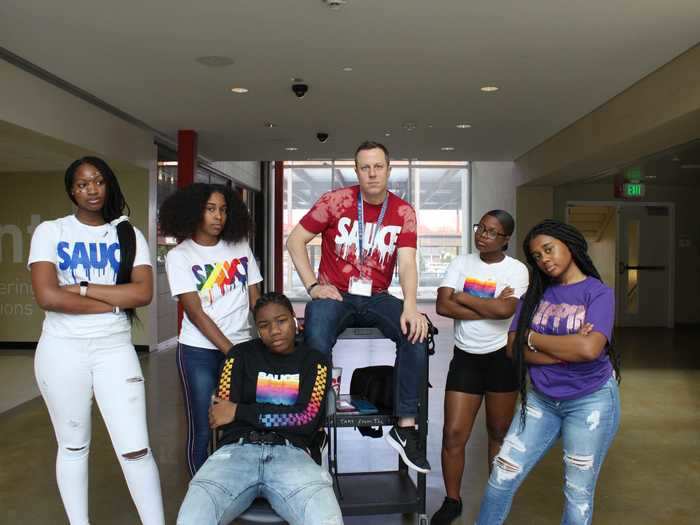
On Dr. Trevor Boffone's first day as a Spanish teacher at Bellaire High School in Houston, Texas, his father died. The educator went through the first few months of the 2018 school year grieving and feeling burnt out.
Then, he noticed his students' making dance videos on Dubsmash, a short-form video-sharing app.
"At the end of class, I'd see all my students doing these highly choreographed dances," he told Insider. "So I started asking questions. I asked what they were doing and how they all knew the dances — because these were highly organized routines. I showed a genuine interest."
His students, Boffone recalled, asked him to participate and agreed to teach him the choreography, which they began filming. At his students' insistence, Boffone started a separate Instagram account to feature their work. The very first video went viral.
Two years later, Boffone has 319,000 followers on Instagram, where he posts videos of his latest student-teacher dances — and since the pandemic hit, the occasional virtual duet with another creator's video.
"What I'm trying to do is to allow the students to recognize their talents and recognize how their identities matter," he said. "How they shouldn't have to change who they are to fit into a system."
The videos, which frequently reach 100,000 views, are produced entirely by students. They choose the music, perfect the choreography, design the lighting, and work the camera. A designated "hype crew" encourages the group dancing.
"The whole culture that we've built around these dances has permeated into the classroom – and really into the whole school as well," he said. "It's all about being positive. It's about support. It's about not being afraid of what people might think about you."
— Margot Harris
Colette Pichon Battle, 44, is dismantling structural racism in the Gulf South that's exacerbated by climate change.
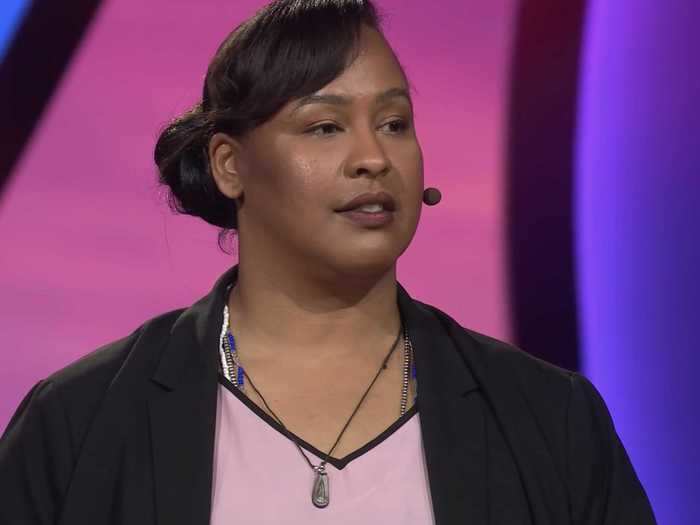
15 years after Hurricane Katrina, the storm's impacts can still be deeply felt, from dilapidated homes yet to be rebuilt in New Orleans' Lower Ninth Ward to the thousands of native New Orleanians who are still unable to return.
Colette Pichon Battle, the founder and Executive Director of the Gulf Coast Center for Law & Policy, is helping dismantle the structural racism in the Gulf South that's exacerbated by climate change.
The GCCLP combats environmental racism by hosting workshops on climate justice, migrant rights, land sovereignty, and economic opportunity. The organization also empowers local communities to engage in grassroots climate organizing and advocates for policy changes on a national level.
The effects of climate change are evident when looking at the sheer magnitude of land being lost in the Gulf South — land predominantly home to indigenous and Black communities who already stand to be the most impacted by climate change.
"We will not win until the original sins of this land are dealt with and we have restorative justice to address them," Battle said at Netroots Nation 2018.
— Canela López
Jerome Foster II, 18, is a climate-focused advocate mobilizing young people to vote.
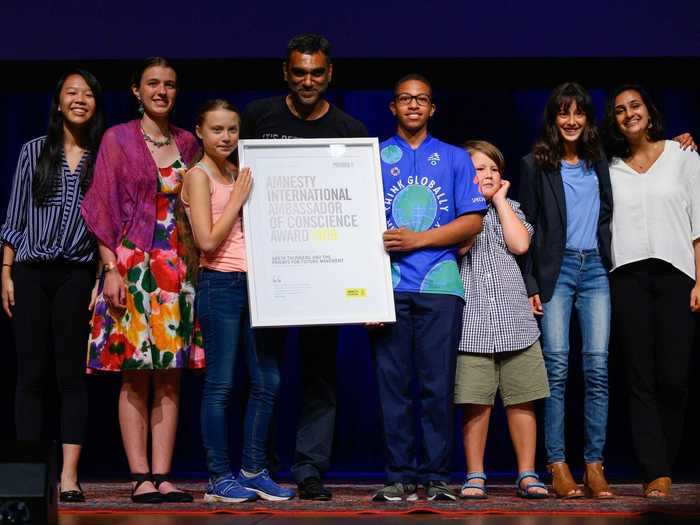
Jerome Foster II grew up watching documentaries about the earth, and he was always disturbed by each film's conclusion.
"Every documentary had this ominous ending because we're polluting the Earth and destroying our natural ecosystem," he told Insider.
Foster channeled his anxieties into conversations with his middle school classmates about climate change, eventually starting an Instagram account to raise awareness about the realities of the climate crisis. But he wanted to find more impactful ways to contribute to the discussion.
After watching National Geographic's 2016 documentary "Before The Flood," he was struck by the documentary's call for a reliable news outlet that focuses on climate change.
In response, Foster launched The Climate Reporter, a news outlet for stories about climate change (he wrote over 160 articles before recruiting other young journalists and activists to take over editorial responsibilities).
In addition to spotlighting environmental activism, The Climate Reporter elevates stories of marginalized communities that are often left out of the climate change conversation.
"Previously, some groups and communities didn't have the space to tell their own stories — someone would come in and just write about their culture," he said.
Growing up in the nation's capital, Foster felt compelled to make political change. In support of Greta Thunberg's School Strike For Climate movement, he held weekly climate strikes outside the White House in Washington, DC (In September of 2019, Thunberg joined one of the strikes, which drew thousands of participants).
Also in 2019, Foster founded OneMillionOfUs, a youth voting and advocacy organization that mobilizes young people to vote in the 2020 presidential election. OneMillionOfUs aims to demystify the voting process, encourage youth civic engagement, and highlight issues of gun violence, climate change, immigration reform, and gender and racial equality.
Foster recently relocated to New York, where he's pursuing a dual degree in engineering and computer science at Pace University and Columbia University.
— Margot Harris
Lester Walker, 39, uses food to spark conversations about race, inclusion, and economic empowerment.
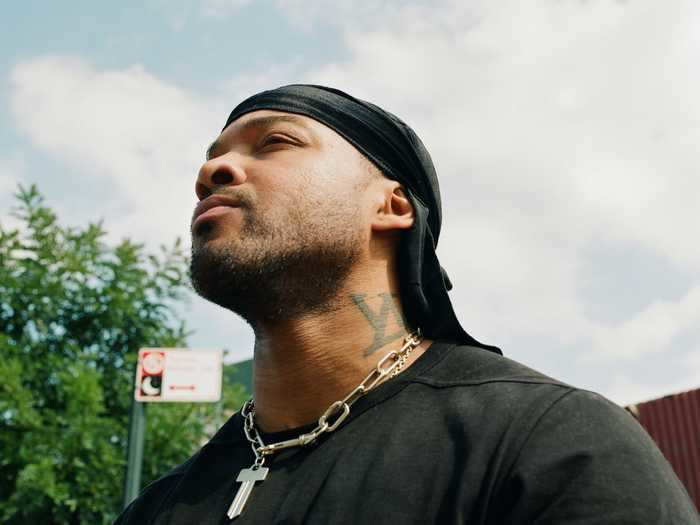
Chef collective Ghetto Gastro has put on glamorous events with the likes of Cartier and Airbnb. It's donated meals during the pandemic to Bronx residents in need. It's hosted "Gastronomical Cribs," an Instagram Live series featuring Naomi Campbell and Tony Hawk. Most recently, it used food trucks to help feed Black Lives Matter protesters in New York City parks.
"Food is a weapon," chef and Ghetto Gastro co-founder Lester Walker told Insider. "It can build our community or destroy our community."
When he first launched Ghetto Gastro in 2012, Walker, who honed his skills in some of New York's most revered restaurants, would bring back whatever was left over from these upscale kitchens and use the scraps to create elaborate dinners intended to spark conversations around inclusion, race, and economic empowerment.
A deconstructed apple pie, for example, featured a chalk outline on a plate — turning the traditional American dessert into a symbol for the Black Lives Matter movement.
In the last few years, Ghetto Gastro has gone from New York Fashion Week to Art Basel in Hong Kong. But it's the Bronx that has always been Walker's top priority. When the New York City borough was hit hard by the pandemic, which has disproportionately affected Black people across the US, Walker made sure that Ghetto Gastro was there to help.
The collective partnered with nonprofit Rethink Food NYC and Oaxacan restaurant La Morada, which is run by undocumented immigrants, to distribute more than 25,000 meals a day to residents.
"Growing up as a kid, I thought my only way out was to get rich or die trying," he said. "When I go back to where I grew up, people are thanking me. I'm changing their outlook on what a superhero is supposed to look like. And that's just amazing."
— Anneta Konstantinides
Brian Wallach, 39, is accelerating the search for an ALS cure.
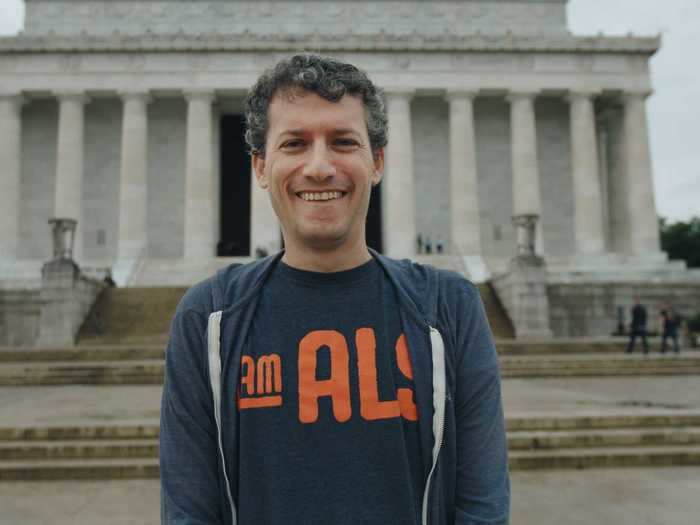
When most people are diagnosed with amyotrophic lateral sclerosis (ALS), their job becomes trying to stay alive.
The incurable nervous system disease, also known as Lou Gehrig's disease, breaks down muscles until the patient dies, typically within two to five years of diagnosis.
But when Brian Wallach was diagnosed with ALS in 2017, he got to work researching, advocating, and eventually founding the nonprofit I Am ALS with his wife last year.
The patient-led movement of more than 60,000 members is accelerating the search for a cure by driving millions of dollars towards research.
In 2019 alone, it led advocacy efforts that resulted in the US Department of Defense doubling its ALS research funding to $20 million and convened two dozen research funders who are now working on collaborative projects.
In 2020, the organization's sights are set even higher, committing $250,000 to a collaborative research program, and aiming to double the DOD's ALS research funding again.
"ALS is not an incurable disease;" Wallach wrote on the I Am ALS website, "it is an underfunded one."
You don't have to have ALS or know someone who does or did to join the fight, Wallach says.
The disease doesn't discriminate, affecting 1 out of every 500 Americans of all ages, races, and genders, regardless of family history.
"I wish more people would get in causes that don't directly affect them today, and use that empowerment that comes from being engaged outside of your comfort zone to tear down systemic inequities and build a more just, humane world," the attorney, former Obama staffer, and father of two told Insider.
— Anna Medaris Miller
Ziwe Fumudoh, 28, uses humor to take on uncomfortable, must-watch conversations about race.
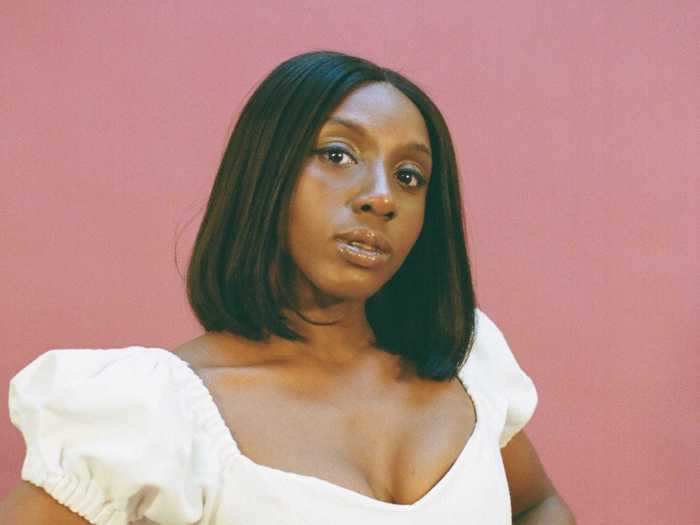
Ziwe Fumudoh has a knack for making people uncomfortable. You may recognize the comedian and writer from her popular Instagram Live show, where she conducts satiric and blunt interviews about race with comedians and celebrities, but she's been a rising star in the New York comedy scene for years.
By day, she writes for "Desus & Mero," and each Thursday night, Fumudoh hosts her interview-style show. Fumudoh sits in silence after asking her interviewees questions like "How many Black friends do you have?" and "Qualitatively, what do you like about Black people?"
Fumudoh's work is not only fascinating to watch; it's also effective. Alexis Neiers discussed her use of blackface on the show, while Caroline Calloway admitted that she didn't see racism as a problem until 2018.
Fumudoh highlights her subjects' everyday racism while asking viewers to reflect on their own racist actions.
Aside from her Instagram Live show, Fumudoh is also writing a collection of essays called "The Book of Ziwe," set to be released in January 2021.
— Samantha Grindell
Dr. Foluso Fakorede is preventing unnecessary amputations in the US.
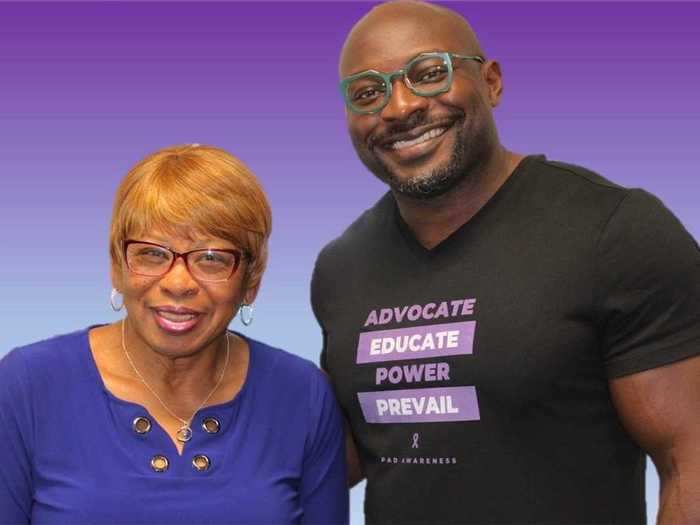
Dr. Foluso Fakorede, a cardiologist who founded the Cardiovascular Solutions of Central Mississippi, is an expert in peripheral artery disease (PAD), a common circulatory condition among people with diabetes. It affects about 6% of the population in Mississippi and has been called an "epidemic" in the US.
The condition often goes undetected by clinicians and patients alike, leading to tens of thousands of unnecessary and costly amputations. Black patients nationwide are three times more likely than others to have the disease result in an amputation.
PAD is "the most prevalent, the most chronic, the most costly, the most deadly, and the most morbid debilitating condition that most Americans have never heard of," Fakorede said.
He's fighting to change that, not only by taking preventative measures with his patients but also through advocacy, creating a Congressional caucus with the goal of stopping unnecessary amputations by making simple screening procedures and interventions part of routine care.
Fakorede has shown that works. Performing angiograms and observing patients' feet for issues like temperature differences (and teaching them to do the same) has decreased amputation rates by 88% in his area.
These measures also save money. PAD costs the US $300 to $400 billion a year,and its prevalence and economic burden is 90% preventable, Fakorede previously told Insider's Hilary Brueck.
Yet as many as 70% of people who wound up with a PAD-related amputation have never had an angiogram, Fakorede told Men's Health. Amputations often don't even work as intended. The five-year death rate for patients who have had below-the-knee amputation ranges from 40 to 82%.
"Those patterns and practices devalue and dehumanize people," Fakorede told Brueck, and especially their bodies."
— Anna Medaris Miller
Schuyler Bailar, 24, is a trans activist and athlete.
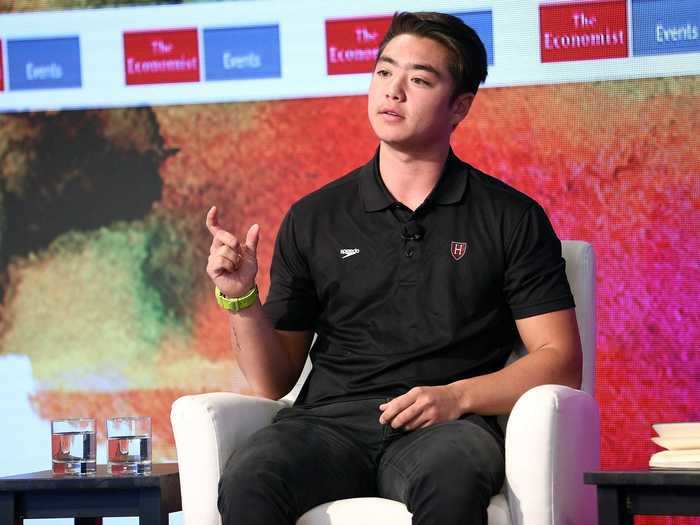
Schuyler Bailar had to make the most difficult decision of his life when he was 18 years old: risk his swimming career by coming out as a trans man or remain closeted and continue as an NCAA Division 1 swimmer on the women's team at Harvard University.
Bailar made athletic history when he decided to come out, becoming the first trans person to ever compete on a NCAA Division 1 men's team. Bailar has since built a following on social media, where he advocates for inclusion, trans rights, and body positivity.
Bailar took a gap year between graduating high school and going to Harvard to deal with negative body image issues, an eating disorder, and mental health difficulties.
He realized in his time off that many of his mental health issues stemmed from gender dysphoria and not being his authentic self as a trans person.
"I wanted people to know that it happened, and I knew that it was going to be a different journey," Bailar told the Harvard Crimson. "If I was going to do it, I wanted to make sure other people could do it, too."
Bailar currently sits on the NCAA Common Ground task force for Inclusion in Sports and works as a diversity consultant for USA Swimming, Plume, the CIA, and TJ Maxx.
— Canela López
READ MORE ARTICLES ON
Popular Right Now
Popular Keywords
Advertisement